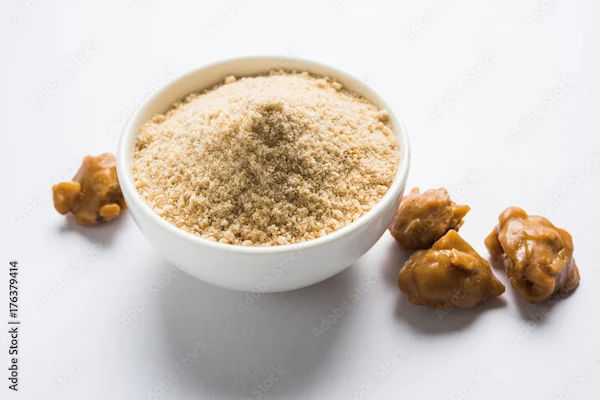Understanding Rectal Manometry Procedures
Learn what rectal manometry is, why it’s done, how it works, and what to expect during the procedure. Understand how this test helps diagnose bowel disorders like constipation and incontinence.

Written by Dr. Rohinipriyanka Pondugula
Reviewed by Dr. Siri Nallapu MBBS
Last updated on 7th Aug, 2025

If you or a loved one has been advised to undergo a rectal manometry procedure, you might have questions or concerns about what it involves. This article aims to explain the procedure in simple terms, why it’s done, what to expect, and how to prepare for it.
What is Rectal Manometry?
Rectal manometry is a diagnostic test that helps doctors evaluate how well your rectum and anal sphincter muscles are working. The rectum is the lower part of your large intestine, and the anal sphincter is the muscle that controls bowel movements.
This test measures:
- Muscle strength in the rectum and anus.
- Coordination between these muscles during bowel movements.
- Sensitivity of the rectum to pressure changes.
Why is Rectal Manometry Done?
Your doctor may recommend this test if you have symptoms like:
- Chronic constipation or difficulty passing stools.
- Fecal incontinence (unable to control bowel movements).
- Pelvic floor dysfunction (muscles not working properly).
- Unexplained abdominal pain or bloating.
The test helps identify problems such as:
- Hirschsprung’s disease (a condition where nerve cells are missing in parts of the intestine).
- Pelvic floor dyssynergia (muscles don’t relax properly during bowel movements).
- Rectal hypersensitivity (rectum overreacts to small amounts of stool).
How is the Test Performed?
The procedure is painless but may feel slightly uncomfortable. Here’s what happens:
1. Preparation:
- You may need to empty your bowels before the test.
- Sometimes, a small enema is given to clear the rectum.
- No sedation is required, so you’ll be awake.
2. During the Test:
- You’ll lie on your side on an exam table.
- A thin, flexible tube (catheter) with a balloon at the tip is gently inserted into your rectum.
- The balloon is inflated to measure pressure changes in the rectum and anal muscles.
You may be asked to squeeze, relax, or push as if having a bowel movement while the machine records muscle activity.
3. After the Test:
- The tube is removed, and you can resume normal activities.
- Results are analyzed by a specialist to determine any muscle or nerve-related issues.
Does It Hurt?
Most people experience mild discomfort but not pain. The insertion of the catheter may feel unusual, but the test itself is quick (usually 30-45 minutes).
How to Prepare for the Test?
- Follow your doctor’s instructions—some may ask you to avoid eating for a few hours.
- Wear comfortable clothing.
- Inform your doctor if you’re taking any medications.
Consult Top Doctors
What Happens After the Test?
Your doctor will discuss the results and suggest treatment options if needed. Depending on the findings, treatment may include:
- Dietary changes (more fiber, hydration).
- Pelvic floor exercises (to strengthen muscles).
- Medications (for constipation or incontinence).
- Biofeedback therapy (helps retrain bowel muscles).
When to See a Doctor?
If you experience:
- Persistent constipation or diarrhea.
- Unexplained abdominal pain.
- Difficulty controlling bowel movements.
It’s best to consult a gastroenterologist for further evaluation.
Book a Consultation with Apollo 24|7
If you’re experiencing bowel-related issues, don’t hesitate to seek medical advice. You can easily book a consultation or schedule a rectal manometry test through Apollo 24|7. Their expert gastroenterologists will guide you through the process and help diagnose any underlying conditions.
Conclusion
Rectal manometry is a safe and useful test to understand bowel function problems. While it may seem intimidating, knowing what to expect can ease your concerns. If you have any questions, always discuss them with your doctor—they’re there to help you feel comfortable and informed.
Consult Top Doctors
Consult Top Doctors

Dr. Mainak Baksi
General Practitioner
13 Years • MBBS , MD (MPH)
Howrah
Mainak Baksi Clinic, Howrah
(50+ Patients)

Dr. J T Hema Pratima
General Practitioner
9 Years • MBBS
Chennai
Apollo 24|7 Clinic - Tamilnadu, Chennai
(250+ Patients)

Dr. Mohammed Huzef Ul Arifeen
General Practitioner
3 Years • MBBS
Hyderabad
Apollo 24|7 Clinic - Telangana, Hyderabad

Dr. Jawwad Mohammed Kaleem
General Practitioner
4 Years • MBBS
Hyderabad
Apollo 24|7 Clinic, Hyderabad

Dr. Rajib Ghose
General Practitioner
25 Years • MBBS
East Midnapore
VIVEKANANDA SEBA SADAN, East Midnapore
Consult Top Doctors

Dr. Mainak Baksi
General Practitioner
13 Years • MBBS , MD (MPH)
Howrah
Mainak Baksi Clinic, Howrah
(50+ Patients)

Dr. J T Hema Pratima
General Practitioner
9 Years • MBBS
Chennai
Apollo 24|7 Clinic - Tamilnadu, Chennai
(250+ Patients)

Dr. Mohammed Huzef Ul Arifeen
General Practitioner
3 Years • MBBS
Hyderabad
Apollo 24|7 Clinic - Telangana, Hyderabad

Dr. Jawwad Mohammed Kaleem
General Practitioner
4 Years • MBBS
Hyderabad
Apollo 24|7 Clinic, Hyderabad

Dr. Rajib Ghose
General Practitioner
25 Years • MBBS
East Midnapore
VIVEKANANDA SEBA SADAN, East Midnapore
.webp)



.webp)